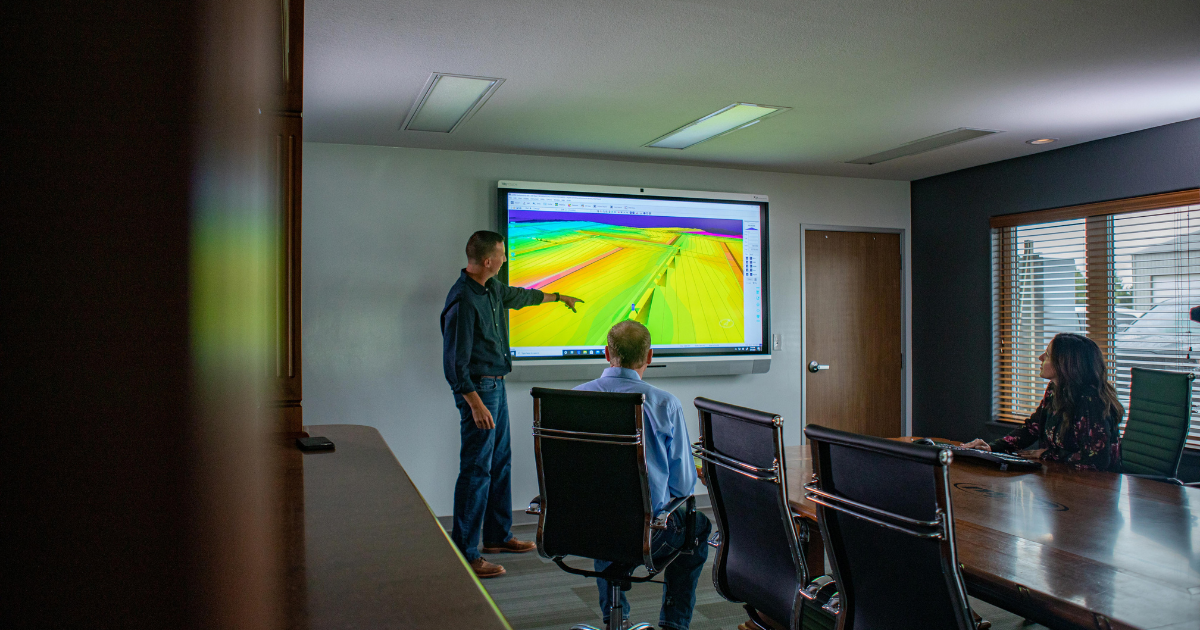
1.10.22
Civil Engineering Feasibility Studies | Establishing Project Viability
Most successful construction projects have one thing in common – vast amounts of planning during the preconstruction phase. Many civil projects have many hours, days, and even weeks dedicated to having a preliminary feasibility study completed before their project even goes out for bidding. Our organization doesn’t typically lead civil feasibility studies, but it is a frequent component of building feedyards and dairies.
What is a feasibility study?
The elements of a feasibility study vary from project to project. Still, essentially a good study consists of making sure a project is ready to go from the idea phase to actual reality. Planners often ask themselves, “Is the site a good space for this project? What legal considerations are there? What type of deadlines are we up against?”
Study outlines and methods | TELOS
When planning large-scale projects, it’s crucial to establish project viability upfront. A common framework used to take ideas to reality is the TELOS method (developed by James A. Hall in 2007).
T – Technological. Researches will begin asking questions about the specific requirements needed to complete the civil project. For example, they may ask questions such as:
- What proof do we need to show this idea is possible?
- What technology is required for a successful project?
- Are stakeholders willing to spend resources to ensure the technology necessary to carry out the plan is available?
E – Economic. Most civil projects are funded with government money. Therefore, it is vital to establish if a project is worth pursuing from an economic standpoint. Questions typical in this phase include:
- What funds will be used to pay for this project?
- Are constituents, officials, and other key stakeholders likely to support this project?
- Compared to other similar projects, how attractive is this idea?
- To be considered successful, what budgetary constraints will be in place?
- Are there specific constraints and deadlines on when/how available funds must be spent?
L – Legal. Phase three of the TELOS framework focuses on legalities and regulator concerns which can be extremely important when using public funds.
- Does this project affect pending legalizations?
- What are site the requirements for the location in question?
- What permits will be needed for project completion?
- What are the Environmental Impacts of this project? Will we need a formal Environmental Impact Study?
O – Organization/Operational. The next phase includes coordinating oversight of the project. Ensuring an adequate workforce before beginning construction can be a challenge.
- Who will oversee this project?
- What construction workforce plans need to be in place for this work?
- Are there contractors and construction companies with the correct skillsets available to complete this project?
- Who will assess the geological concerns?
S – Schedules. Everyone who’s completed any construction project understands the need for clear communication and deadlines. When putting together the feasibility study, it is essential to put timelines together to ensure project viability.
- Is it possible to complete this project in a specific timeframe?
- What are potential hurdles that could impact the schedule?
- If deadlines are not met, how will that affect the project’s success?
- What are the consequences of schedule delays?
What is the value of feasibility studies?
Large-scale civil projects such as building reservoirs, highways, lagoons, and landfills simply wouldn’t be possible without a carefully crafted feasibility study before projects are set to begin. However, even with careful planning, each project will come with challenges. MJE brings years of experience to every job site and can lead and assist in many aspects of preconstruction, including project feasibility.
How can I learn more?
If you’re interested in taking your idea from the lightbulb stage to reality, visit with one of our experienced project managers. They can help you start establishing feasibility for your next project.